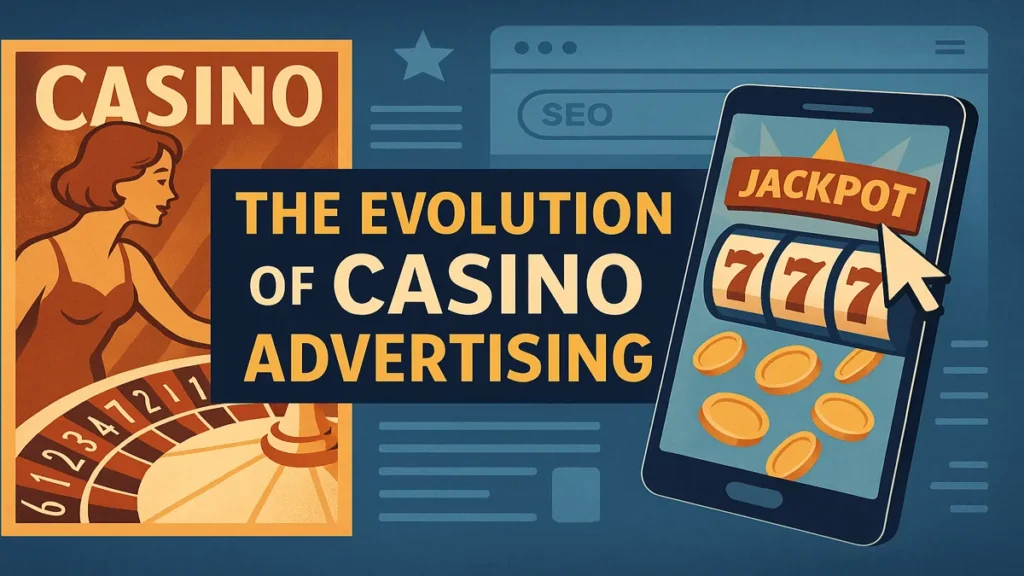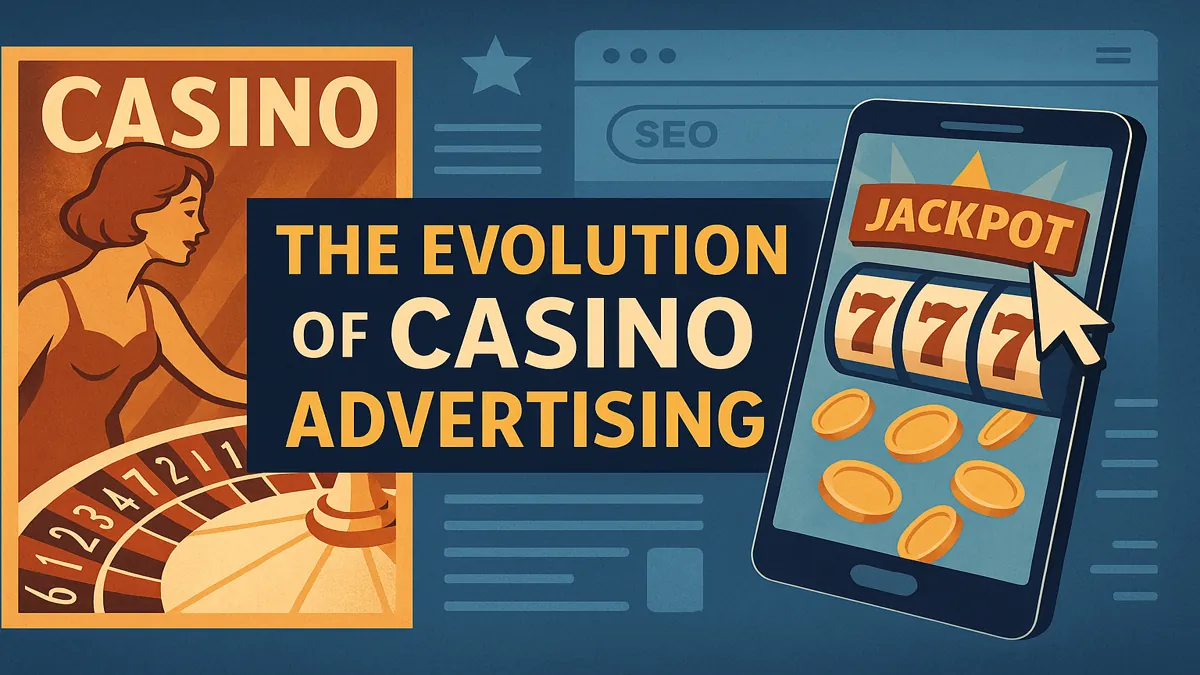The evolution of casino advertising has undergone dramatic transformations over the decades. From subtle newspaper placements to flashy digital campaigns, the way gambling is promoted reflects not only changes in marketing trends but also evolving societal values. This article explores how casino advertising has navigated the delicate space between cultural representation and ethical responsibility.

Early Casino Advertising: Glamour and Exclusivity
Evolution in Print and Broadcast Media
In the mid-1900s, the evolution of casino advertising focused on an elite clientele. Full-page spreads in glossy magazines and black-tie TV commercials showcased casinos as glamorous escapes. These ads emphasized luxury, fashion, and high-stakes excitement rather than gambling itself.
Hollywood’s Influence
Films like Ocean’s Eleven and Casino contributed to an image of casinos as thrilling, stylish playgrounds. These portrayals, though fictional, helped shape public perception and were subtly echoed in advertising materials.
The Rise of Digital and Targeted Advertising
Algorithmic Targeting in Casino Promotions
With the advent of digital marketing, casino promotions became more widespread and personalized. Ads now follow users across websites, social media, and apps—using data to target individuals based on age, interests, and behavior.
Ethical Dilemmas in Digital Advertising
This hyper-targeted approach has raised significant ethical concerns. Critics argue that it increases exposure to vulnerable individuals, particularly those with gambling addictions or underage users. Regulations in regions like the UK and Australia now restrict how and when such ads can appear.
Cultural Sensitivity and Globalization
Adapting to Local Norms
As casinos expand into global markets, their advertising must respect cultural values. What is acceptable in Las Vegas may be taboo in Japan or conservative regions of Asia and the Middle East. Companies now develop region-specific campaigns to align with local customs and sensitivities.
Promoting “Responsible Gambling” in Ad Campaigns
In recent years, many jurisdictions have mandated the inclusion of responsible gambling messages in all promotional content. Brands are expected to encourage limits, awareness, and self-control.
Conclusion: Striking a Balance
The evolution of casino advertising reflects an ongoing tension between enticing entertainment and ethical marketing. As public scrutiny grows and regulations tighten, advertisers must continue adapting their strategies—balancing cultural appeal with moral accountability.
